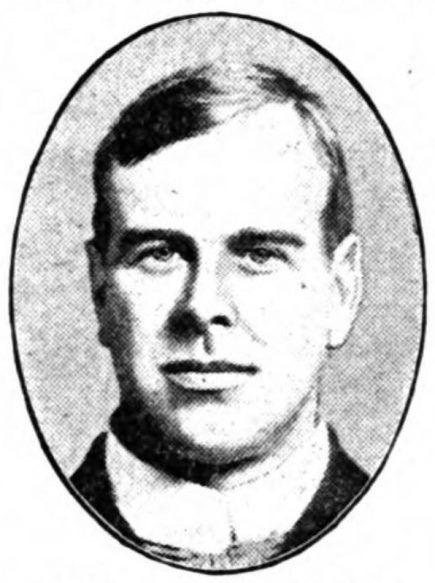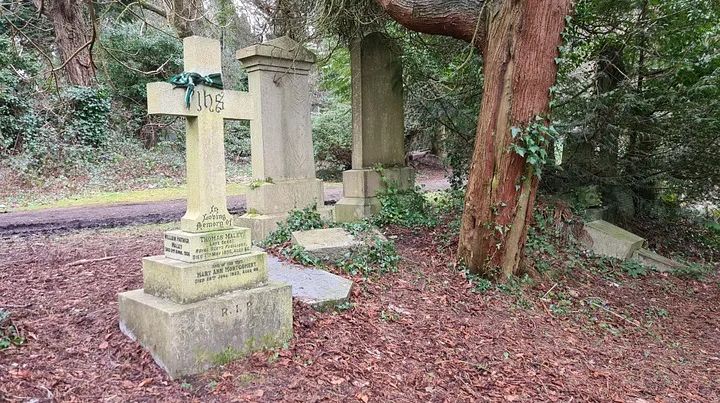William "Willie" Maley

If there were two figures that epitomised the early days of Glasgow Celtic Football Club they were Renton's James Kelly and Willie Maley. Both would play for the club and for Scotland. The former nine times and the latter just twice. And, of course, Maley would from 1897 go on to manage Celtic for fully forty-three years.
Indeed Maley's caps both came alongside Kelly and in 1893. He was then aged just twenty-four and might have expected many more appearances. Except it would never happen and for one simple reason. It was realised that Willie had been born outwith Scotland and therefore did not qualify for the country that had for twenty-three years had been his home. In fact William Patrick Maley, the middle son of an Irishman from Co. Clare and a Scots-Canadian mother, had been by fate born in 1868 in the North of Ireland, at Newry Barracks, where his father, then a soldier, had at the time been based.
However, within a year of Maley's birth his father had obtained an honourable discharge from the army and moved his family to Cathcart, south of Glasgow, specifically Argyle Place in New Cathcart, between Muirend and Marylee. There he worked as a drill-sergeant and it was there too that Willie and his siblings grew up, he leaving school at 13 and first working at the nearby Netherlee dye-works. As a junior he was more an athlete than a footballer. But he played for local Cathcart Hazelbank, then briefly following his elder brother, Tom, to Third Lanark before Celtic in the form of Brother Walfrid himself and John Glass came a-calling. In fact the pair had actually come looking for Tom, who was out with his wife-to-be, and came away with Willie instead.
With Celtic as a player, at half-back, from 1888 to 1897 and seventy-odd appearances Willie Maley was to take the Scottish First Division in 1893, 1894 and 1896, lose the Scottish Cup Final in 1889, 1893 and 1894, a match refereed by fellow Cathcart-resident, Charles Campbell, and win it in 1892. But in 1897 and now a clerk he stepped back and up, being appointed by the Board, aged just twenty-nine, the club's first Secretary-Manager, as such taking the Championship in his first full season. It was to be the first of thirty major trophies, sixteen Leagues and fourteen Cups. To do so he ended the policy of buying in talent and instead brought it through with a junior and youth policy, particularly in the early years, building a series of highly successful young teams that matured on.
However, through the 1920s and 1930s, in the face of Glasgow Rangers, ultimate success proved harder to achieve and, despite championships in 1936 and 1938, at the beginning of 1940 the club found itself bottom of the table. By then Maley was over seventy and was not really running the club. That was in the hands of former Maley-player and now assistant manager, Jimmy McMenemy. And it was to be both who in February of that year finally faced the displeasure of the Board, Maley stepping away and McMenemy standing down.
In fact Maley took enforced retirement badly. There were wrangles over money. He would not set foot in Celtic Park for another thirteen years, not making up with the Board until 1953, invited to return by the newish Chairman, Robert Kelly, son of James. By then he was eighty-five but nevertheless relatively spry. Indeed he would live another four years dying, not quite ninety, in 1958 in a nursing home a mile or so from Cathcart. And he is buried almost at home too, in Cathcart Cemetery, a quarter of a mile not from where he was born an Irishman but had grown up Scots.

Birth Locator:
Newry Barracks, Co. Down, Ireland
Mourne View, Newry, Co. Down, Ireland
Residence Locations:
1881 - Argyle Place, New Cathcart
Argyle Place, 327/329, Clarkston Road, New Cathcart
1891 - Argyle Place, New Cathcart
1901 - Salisbury Hotel, London
1911- 17, Hyndland Ave., Partick Hill, Glasgow
1921 - 14, Hyndland Ave., Partick Hill, Glasgow
1958 - 97, Hyndland Ave, Partick Hill, Glasgow
Death Locator:
1958 - Bon Secours Hospital Nursing Home, 32, Mansionhouse Road, Queen's Park, Glasgow
Grave Locator:
Back to the Irish Trail,
or the SFHG Home page